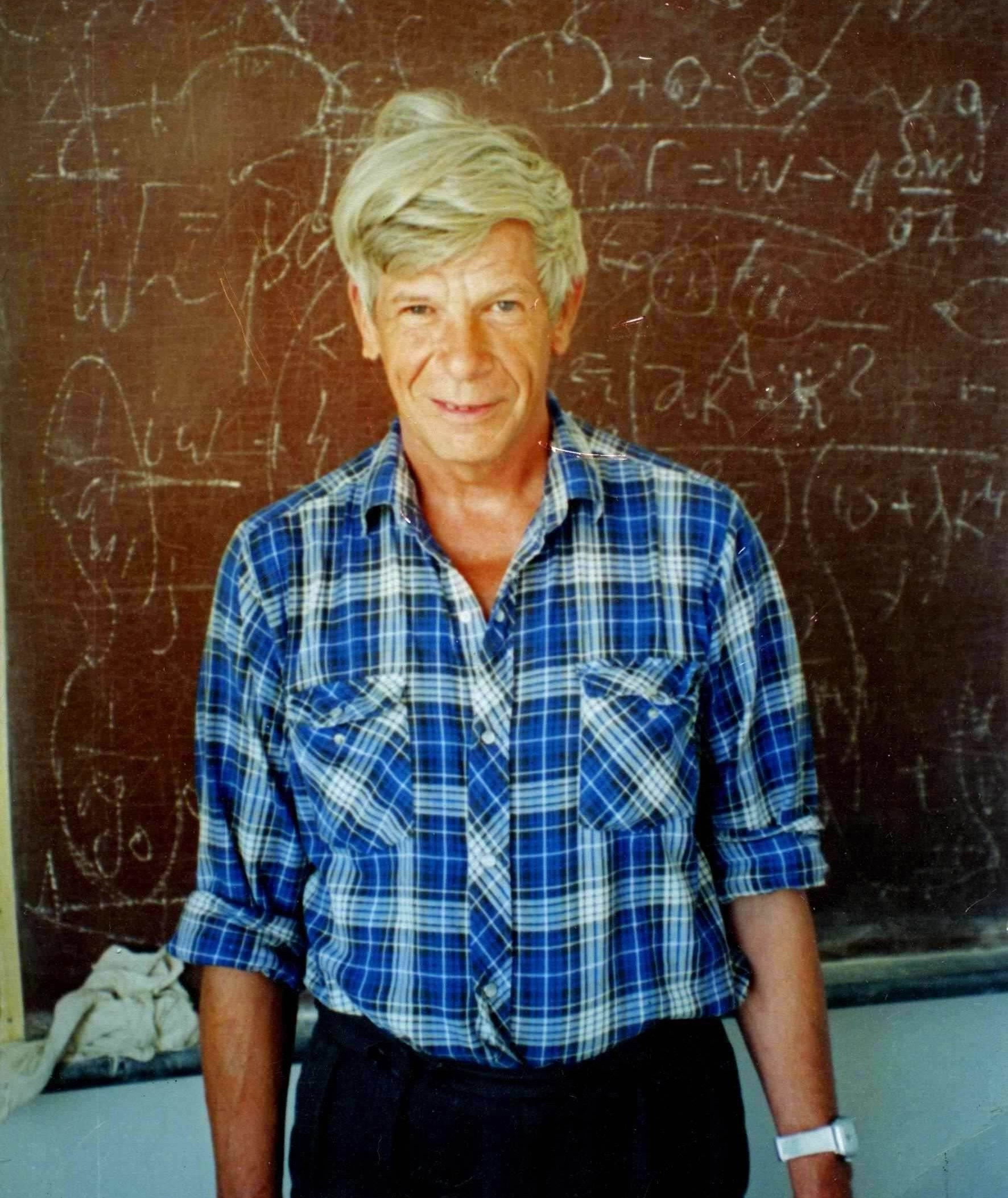 |
The conference MQFT–2025 is dedicated to the Soviet and Russian theoretical physicist professor Alexander Nikolaevich Vasiliev (1940 – 2006). Professor Vasiliev was born in 1940 in Pskov, where he graduated from high school with honors. He enrolled in the Faculty of Physics of Leningrad State University, where he remained for his entire career. After graduating Alexander Nikolaevich continued to work at the Department of Theoretical Physics, which later became the Department of Nuclear and Elementary Particle Theory, and is now the High Energy and Elementary Particles Physics. Over the years of his work at the university, Alexander Nikolaevich earned a well-deserved reputation as one of the best professors in the Physics Department. Students praised his lectures for their exceptional simplicity and clarity, especially concerning explanation of the most complex theoretical concepts. For his long teaching career, professor Vasiliev was awarded the prize “For Pedagogical Excellence”. |
|
The years of Vasiliev's work coincided with a period of rapid development in theoretical physics. Reflecting the spirit of the times, his scientific interests were broad and varied. At the beginning of his career, professor Vasiliev achieved notable success in the field of Constructive Quantum Field Theory. The results obtained by him were recognized in 1972 with the Lenin Komsomol Prize. However, the greatest international recognition he gained as an outstanding specialist in the field of functional methods in quantum field theory and statistical physics. Professor Vasiliev had a particular interest in the theory of scale-free long-range correlations, such as found in critical behavior or turbulent motion. The combination of his brilliant teaching skills and outstanding scientific talent ultimately led to the emergence of the so-called "Vasiliev School." Among Alexander Nikolaevich's students there are 9 doctors of science and over 20 candidates of science. Many of his former students have developed their own scientific areas and have their own students. The results obtained by professor Vasiliev and representatives of his school highlight the profound internal unity of classical and quantum complex systems with a large number of degrees of freedom. Many of the problems that captivated Vasiliev's attention remain relevant to this day and continue to be explored by his students. We hope that the conference will bring together colleagues and former students of professor Vasiliev, as well as scientists who share his interests and passion for science, and will serve as a platform for productive exchange of knowledge and ideas. |
|
Choose timezone
Your profile timezone:

